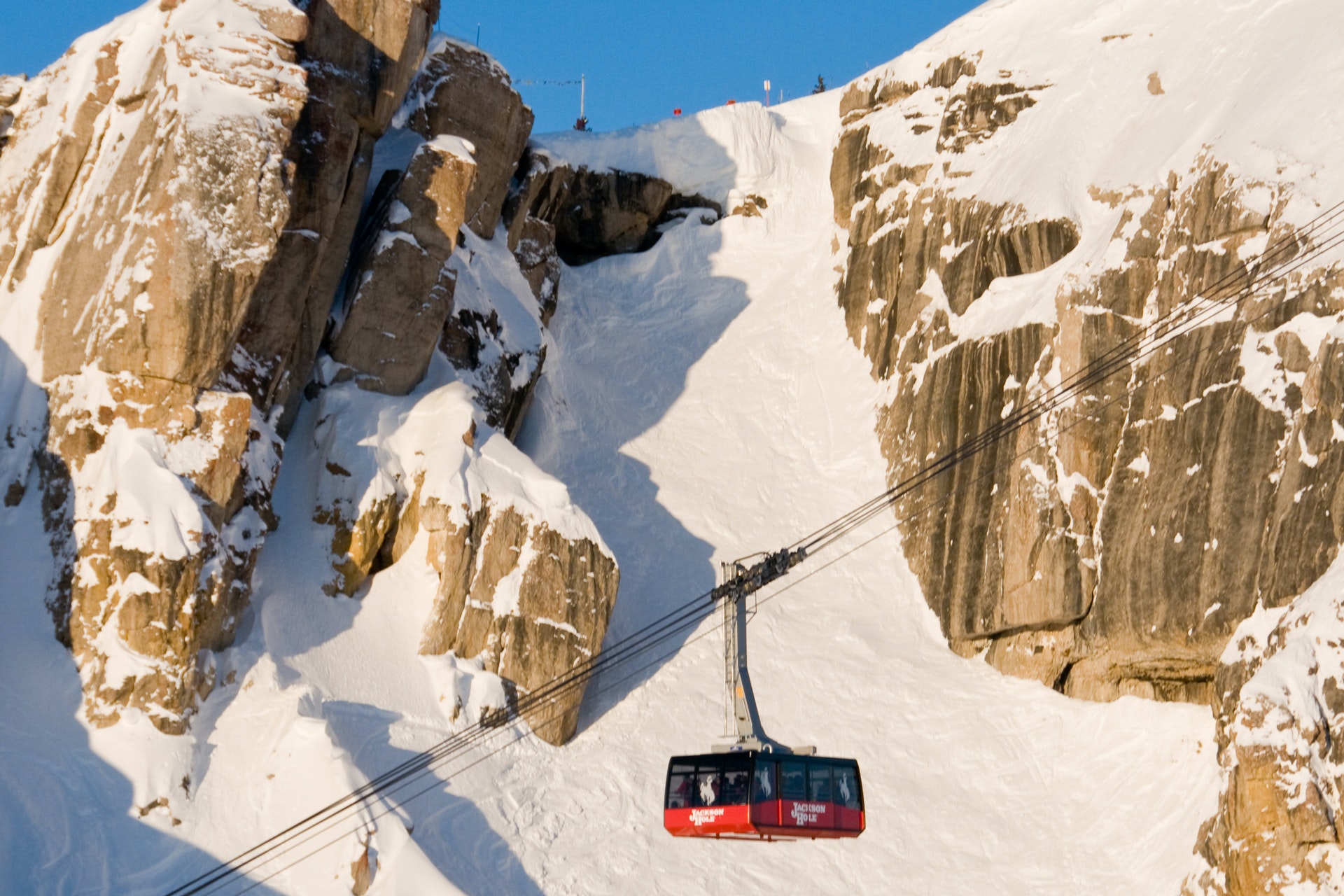
A Final Look
Welcome to the last article of this five-part series looking at some of the world’s best ski and snowboard tours. Our goal is to look beyond traditional alpine racing and bring to you some of the most inspiring competitive skiing and riding happening today.
- Part One: World Ski & Snowboard Tours, Explained: Freeride World Tour
- Part Two: World Ski & Snowboard Tours, Explained: Natural Selection Tour
- Part Three: World Ski & Snowboard Tours, Explained: The Winter Dew Tour
- Part Four: World Ski & Snowboard Tours, Explained: Junior Freeride World Tour
Beers, Brainstorming, And Another Great Idea
Like many other great ideas that bubbled up to the surface over discussions with adult beverages, the origin of The Kings & Queens followed a similar path. It started with accomplished skier and Freeride World Tour veteran Jess McMillan who was interested in expanding a tour stop within the U.S. In another interview she explained where her idea came from, sharing,
“I competed on the Freeride World Tour for 10 years, and they always wondered where they could hold an event in Jackson Hole. So, one night back in 2016, Eric Seymour (Jess’s husband and also Jackson Hole Mountain Resort’s media manager) were sitting at home, having a beer, brainstorming and we were like… Do you know where would be the sickest place for a competition? Corbet’s.”
With a King of Corbet’s title already applied by the legendary (late) Doug Coombs, McMillan and Seymour simply needed to add Queens to reach parity. Then behind a concentrated effort that took almost two years, they gained approval from U.S. Forest Service, JHMR, and ski patrol for the go-ahead. Finally, in 2018 and bolstered by a crucial early sponsor buy-in by Red Bull, Jess and her team were ready. The format: an invite-only list of the world’s best men and women ski and snowboard athletes who would not only compete in the contest but also judge their peers in a best-of-2 run competition. Corbet’s was closed two weeks prior to the contest to allow time for Jess and her team to prepare the manmade features in Tensleep Bowl and also allow the upper chute to fill in with some fresh snow.
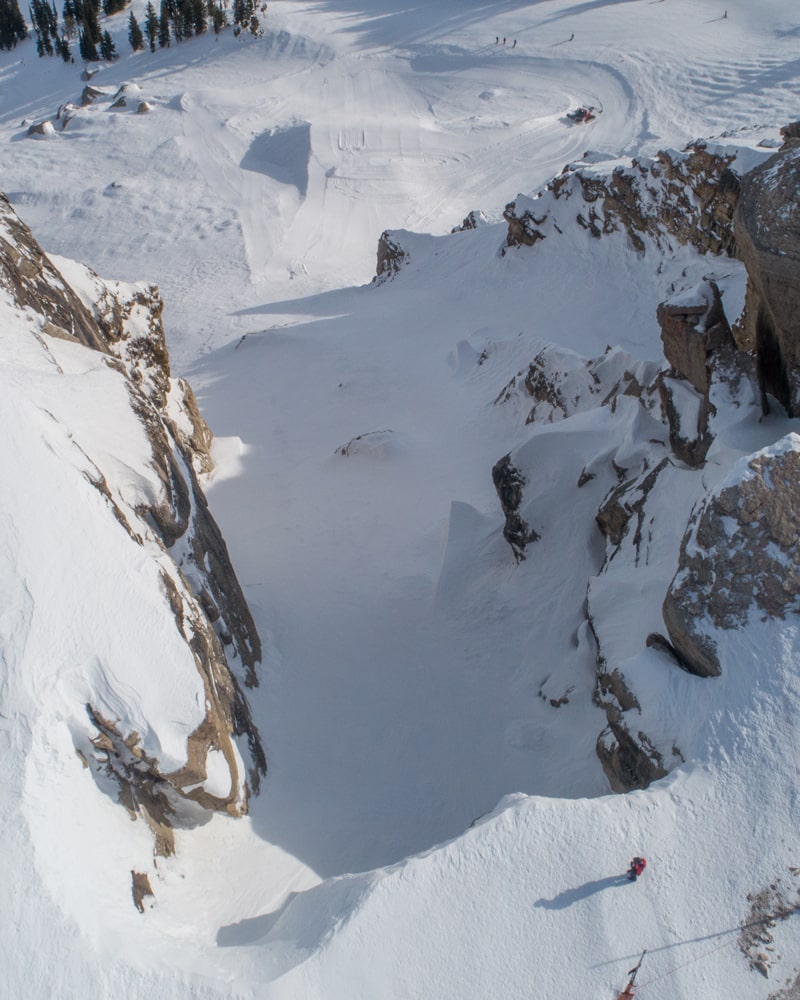
“Someday, That Will Be A Ski Run”
Couloir’s French translation approximates ‘hallway’ or ‘passage’, and that’s what JHMR co-founder Paul McCollister and Canadian-born college dropout Barry Corbet saw from a work tram in 1960. Inspecting Rendezvous Bowl for a future resort, Corbet first pinpointed the 15-foot wide white funnel splitting a vertical cliff band and famously uttered, “Someday that will be a ski run.” Little did he know what a legendary run it would become.

Closer Look At Corbet’s
Sitting in Bridger-Teton National Forest at 10,250 feet above sea level, and rimmed by massive limestone walls, Corbet’s is one of North America’s most iconic couloirs. This north-facing chute runs close to the Tram, adding entertainment value to an already heavy experience.
The couloir’s entrance requires a 10 to 20-foot drop to access a winding, steep chute. Once inside Corbet’s, there is a hard, blind right turn before an immediate left to avoid serious injury against the rock walls. The narrow chute then opens like a fan into Tensleep Bowl awaiting below. It may only be a total of 1.5 acres, but with an average steepness of 40 degrees, it’s a true test for expert skiers and riders alike.
The couloir receives plenty of wind-blown snow from the prevailing southwesterly winds that swirl across its entrance and then deposit blankets of snow into the funnel. Ski patrol limits access to the entrance and typically only opens it after accumulating a 50 to 70-inch base.
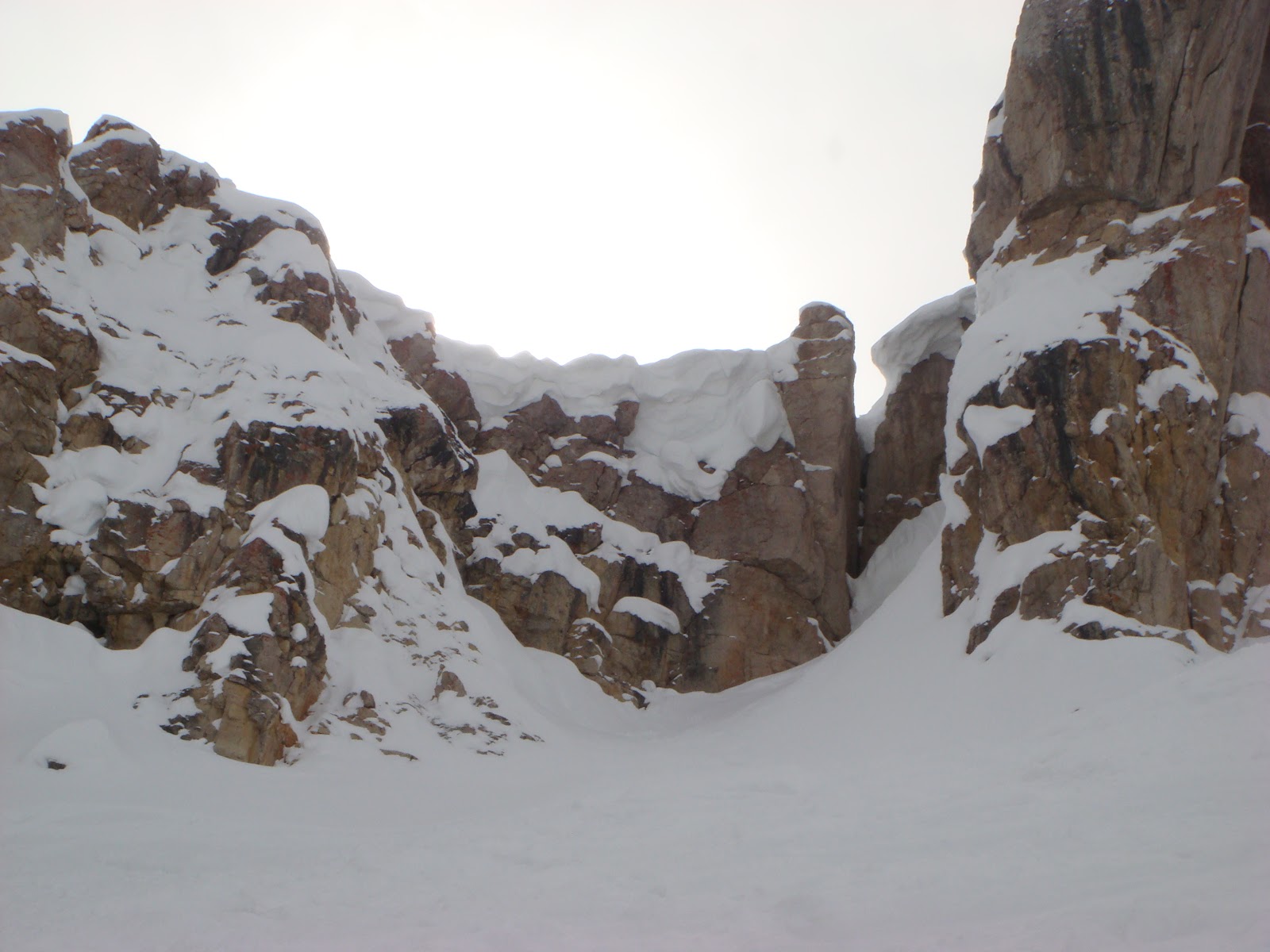
Who Skis/Rides Corbet’s?
19-year-old ski patroller Lonnie Ball was the first to lay tracks in 1967. Actually, as the story goes, he was inspecting the chute when the cornice broke underneath him. He instinctively jumped and was able to land upright so he just kept going all the way to the bottom.
Lonnie’s competition at the time was few if any. In the 1960s and 1970s, only the locals were reported to ski it. Then beginning in the late 1980s and accelerating behind the popularity of the extreme skiing and snowboarding movement happening at the time, Corbet’s began attracting larger crowds, including vacationers who wanted to feed their ego and test their mettle. Today it’s not uncommon to see people lined up shoulder to shoulder just to get a glimpse of the action.
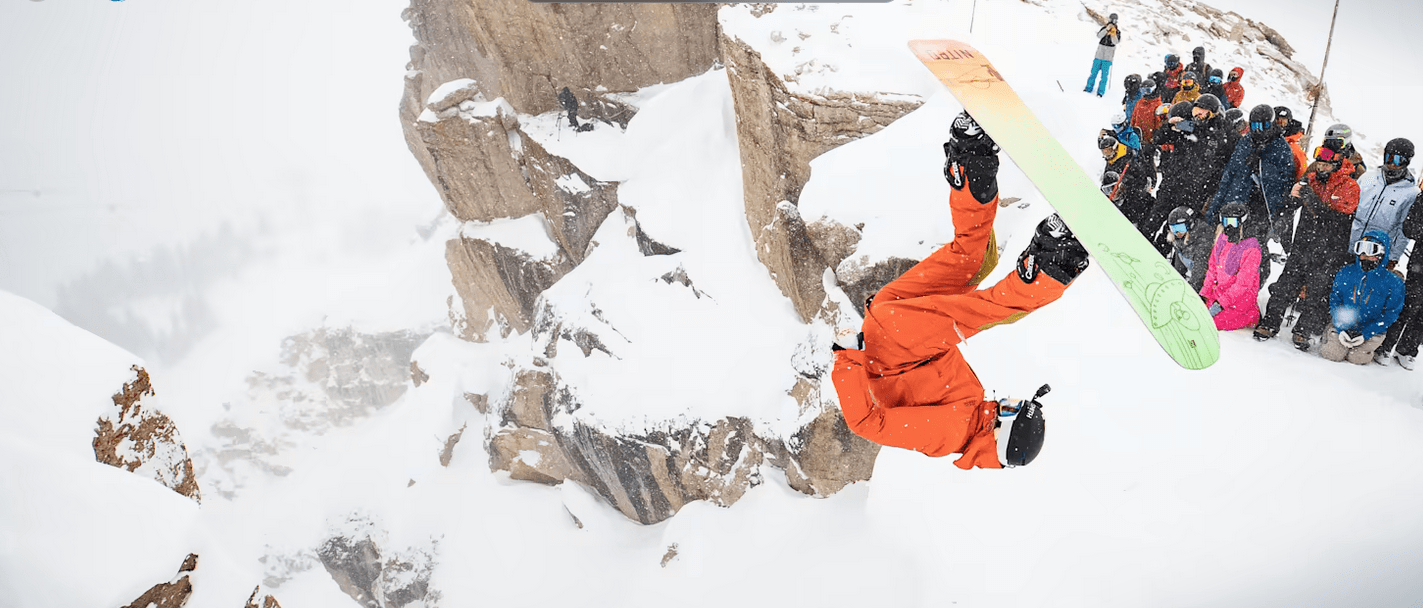
2022 Kings & Queens Athlete Profiles
Here’s a look at some of the top athletes who competed in 2022 (per Red Bull.com):
Hans Mindnich, 2022 King of Corbet’s on Instagram
Hans grew up in Vermont, where he began to snowboard at age 7. After competing in Superparks for the earlier part of his career, focused on skiing for films.
Piper Kunst, 2022 Queen of Corbet’s on Instagram
Piper is a 21-year-old skier from South Park, Colorado. She moved to Salt Lake City in 2018 and typically skis in Alta, where she’s pushed harder in her career than ever before.
Corey Jackson, 2022 People’s Choice Award Winner on Instagram & TikTok
Corey was born and raised in Jackson, Wyoming. He is a proud Jackson Hole Freeride alumni skier who is also previously the 2018 Olympian coach of an Irish skier in Halfpipe.
Parkin Costain, 3rd Place on Instagram
Parkin was born and raised in Big Sky, Montana. He’s been skiing since he was just eight years old. Parkin’s career exploded after he was crowned the 2020 King of Corbet’s.
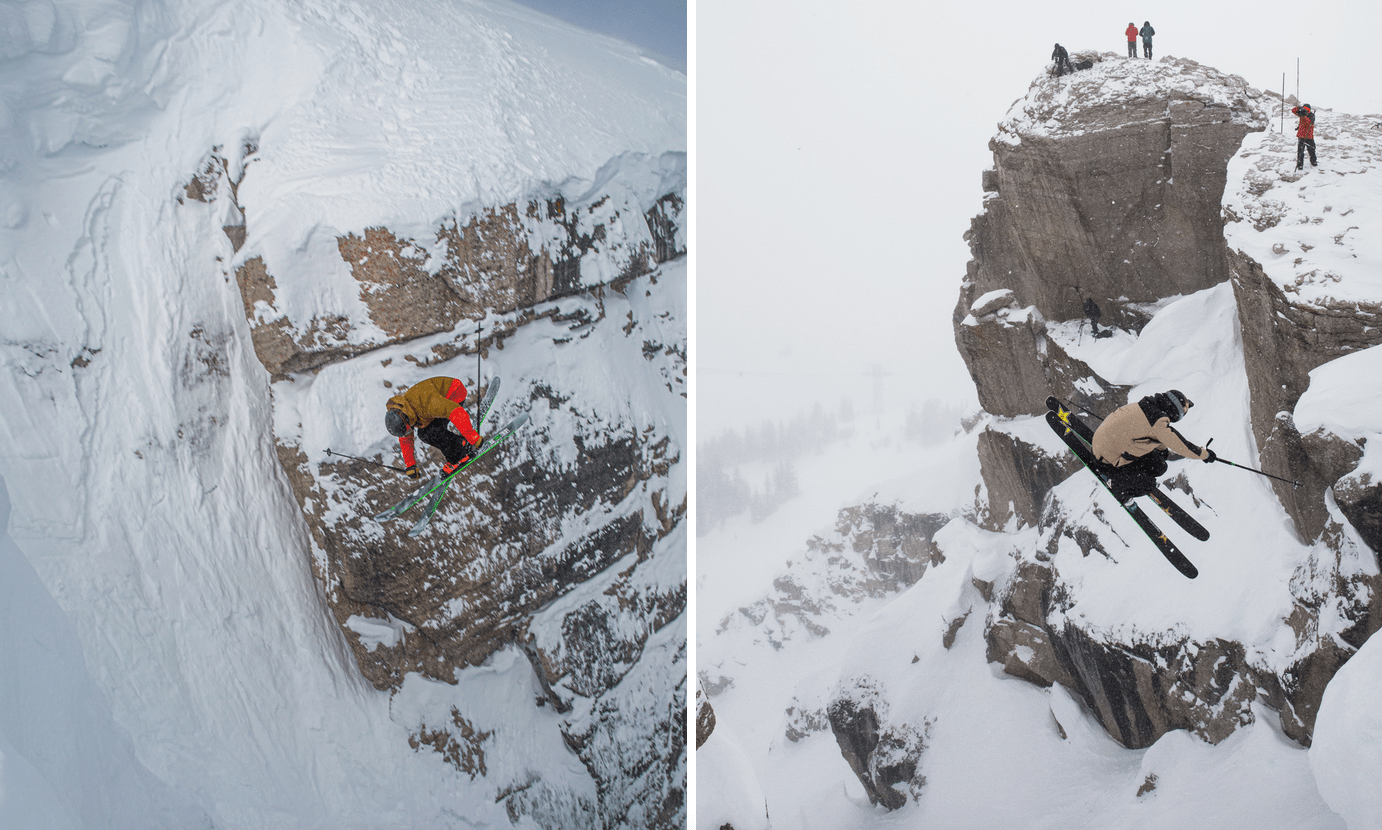
Karl Fostvedt on Instagram
2-time King of Corbet’s, Karl is a backcountry skier and snowmobiler from Ketchum, Idaho. Known affectionately as ‘Crazy Karl’, he’s keen to push the sport and expand on what’s possible.
Jake Hopfinger on Instagram
Jake now calls Bozeman, Montana, home. He skis full-time in the backcountry, where he chases storms and shoots film segments. He was the first person to land a double backflip in Corbet’s in 2020.
Madison Blackley on Instagram
Hailing from Park City, Utah, but now riding her snowboard in Salt Lake City, Madison was crowned the 2021 Queen of Corbet’s after her second year competing in the event.
Audrey Hebert on Instagram
Canadian freerider Audrey Hebert moved to Banff when she turned 18 and started competing in 2014 in freeride events and banked slaloms.
Cheryl Maas on Instagram
Now calling Idaho home, Cheryl is a 3-time Olympian, World Champion, and X Games Big Air gold medalist as well as competing on the Natural Selection Tour.
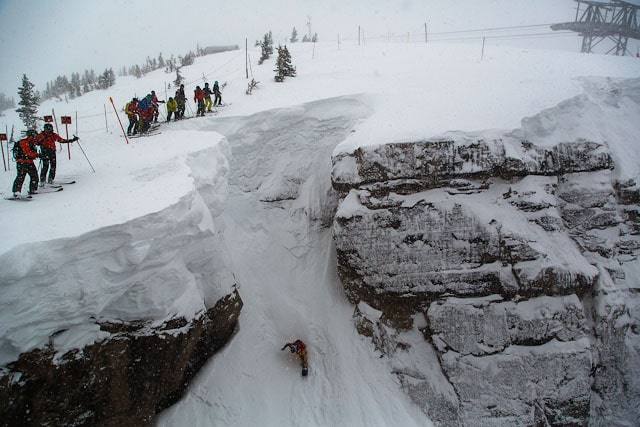
Jumps, Tricks, and Straight-Up Hucks
Just conquering Corbet’s is an amazing feat in itself. But to lay down jumps and tricks like it’s just another day in the park? In a TGR interview, ‘Crazy’ Karl Fostvedt proclaimed, “Corbet’s is a one-of-a-kind contest. And I like that it’s not overly regulated. It’s old school, hot-dog style and I appreciate that.”
This hot-dog-style approach invites more creativity and exploration among the athletes. And because of that over the past five years, we’ve seen a natural evolution of these jumps and tricks. In 2018, they began with 360s and a single backflip. Last year in 2022 we saw athletes send double backflips and land mind-boggling 1060s. Here are a couple of other highlights you might enjoy:
- [VIDEO] Kings & Queens of Corbet’s 2022- TOP 5 MEN’S RUNS
- [VIDEO] Kings & Queens of Corbet’s 2022- TOP 3 WOMEN’S RUNS
- [VIDEO] GoPro: Kings and Queens of Corbet’s 2022 Highlights
- [VIDEO] Kings & Queens 2020 – Next Level Corbet’s Couloir
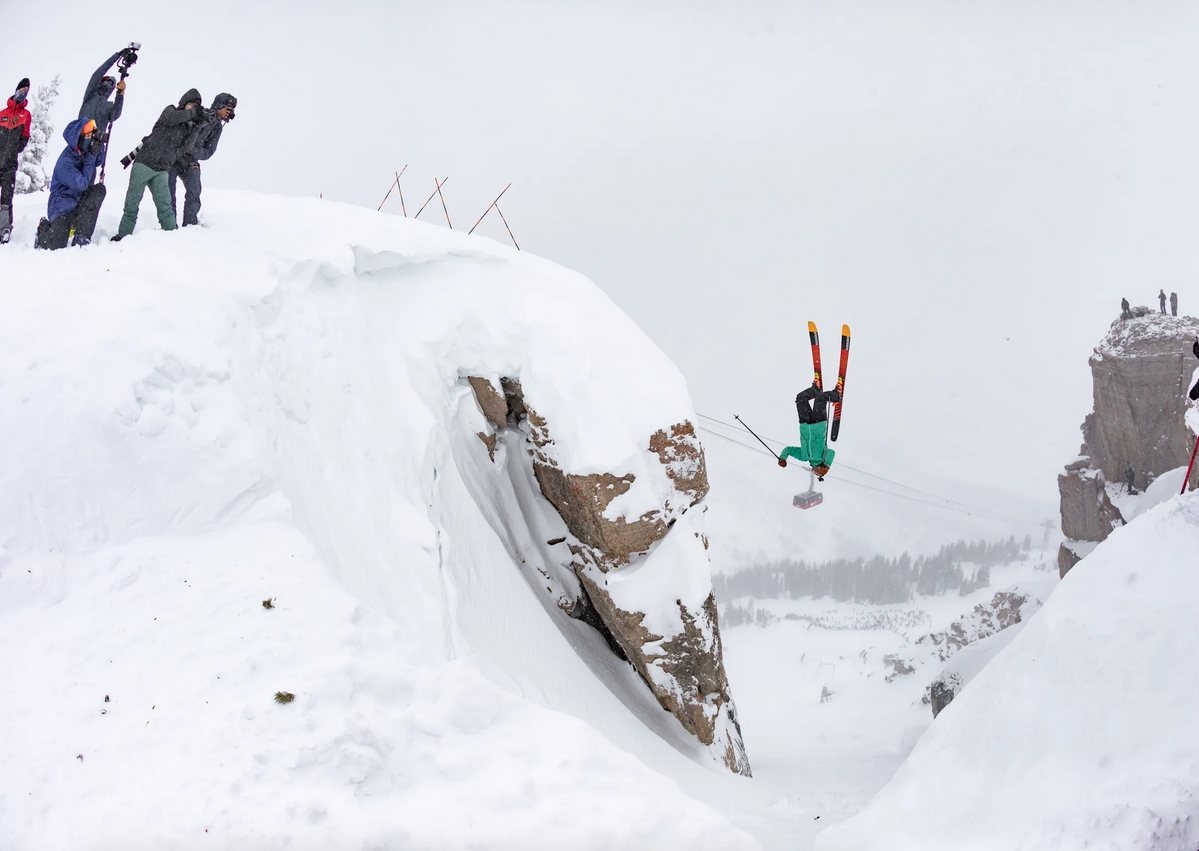
Fair Warning
With all the hype and glory around these outrageous tricks, I thought it was equally worthy to emphasize the safety and skill it takes to perform them. Corbet’s couloir is not for the faint of heart as Freeride World Tour champion and Corbet’s veteran Griffin Post explained in another interview,
“On the in-run, all you see is the lip, then suddenly you see the bottom of Tensleep Bowl. You feel like you are launching to the moon as the ground falls away. Even though you know what’s down there, your brain short circuits a little.”
Veteran Jackson Hole ski patroller Bob Comey commented in another interview,
“In the 1960s and ‘70s, that was a different world. The run was never prohibited, but no one really considered going there. And the sport has evolved a lot, but it is still one of the most challenging runs on the mountain.” Comey went on to explain, “People show up to ski here and it’s on their list, but if conditions aren’t good, be prepared to say no and ski away. The ideal day to go into it is a waist-deep day.”
Even experienced riders never really get comfortable with Corbet’s as Jess McMillan who confessed in another interview, “There’s always a butterfly factor. If you are not feeling it 100%, you shouldn’t ski it. It’s rowdy. I only ski it when it’s in good condition.” In that same interview pro snowboarder, Bryan Iguchi shared his own warning saying,
“Take a look – see how the locals are hitting it, as it changes throughout the season… but when you go, you’ve got to commit wholeheartedly, solid and confident over your board. And then there’s probably still a good chance you’re not going to make it. Once in a while I’ll go in and end up getting a beating.”
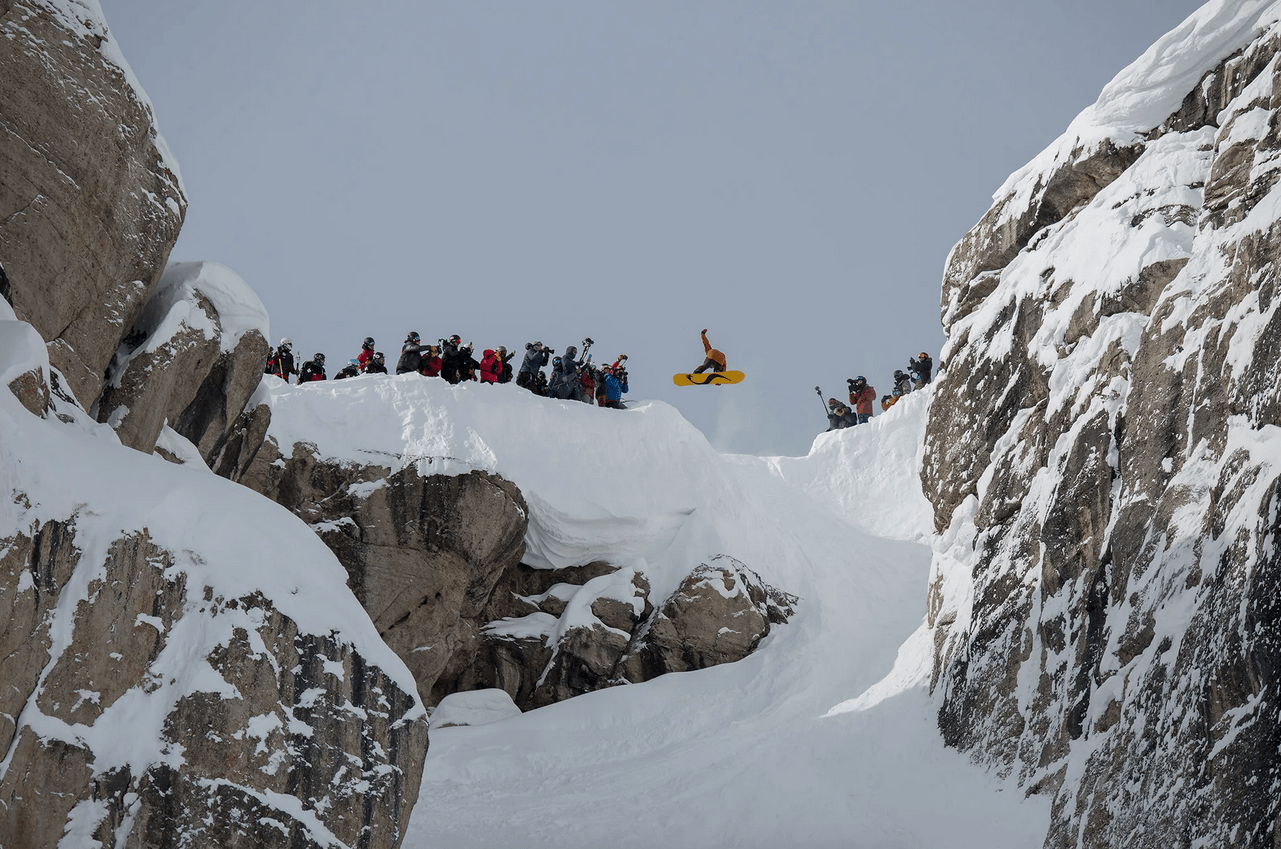
Conquering Corbet’s
Where is the room for error? How does a non-elite athlete (myself included) try to conquer Corbet’s? It starts by choosing the right entrance. Novices often pick the line to the skier’s left (the lowest point of the entrance), called the goat path. This entry point necessitates a 10-foot air before making a fast, blind right turn followed by an immediate left to avoid hitting the imposing rock walls that define the top of the couloir.
More experienced hucksters may try sending it over a middle line and off the overhanging cornice that builds each season. This approach requires fewer, if any, turns if you line it up correctly and enjoy straight-lining. But what the approach lacks in turning makes up for with the difficult entry and high rate of speed. The center-line approach requires stomping a 25 to 30-foot drop before skiing down to Tensleep Bowl below.
An approach this rowdy undoubtedly requires plenty of practice before you try it for the first time. Here’s a simple freeride progression [VIDEO] to help you level up your skills and start stomping those cliffs.
Presuming you enter Corbet’s safely, you still need to make several high-speed turns on extremely steep slopes to make it upright and alive. On their own website, film company and Jackson Hole locals, Teton Gravity Research suggests you,
“Find places on the mountain where you can plan a high-speed straight line into a sharp right turn, making sure to practice avoiding getting bucked back on your skis or snowboard. That is a super important factor – if you are not aggressively forward, you are likely to crash when you try to make the next, immediate left turn into the rest of the chute. Steep cliffy areas of the mountain like Expert Chutes (below Tensleep Bowl) or Bird in the Hand (off of the Sublette quad), for example, are good practice spots without the consequences and will give you a physical, and certainly mental, advantage.”
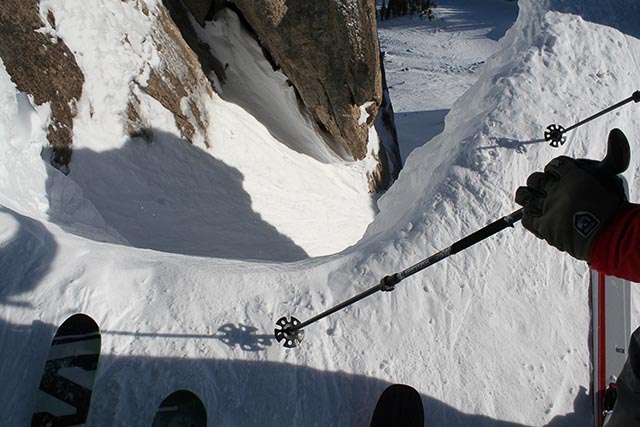
Corbet’s Older, Gnarlier Sibling
For those looking for the ultimate in-bounds challenge at Jackson Hole, then perhaps you’d like to take a shot at Corbet’s gnarlier sibling to the south, the S & S Couloir.
S & S is rarely open during the season and requires special permission from the JHMR ski patrol just to ski it. What makes S & S so rowdy is its extreme level of difficulty. It requires a 25 to 30-foot mandatory drop into a tighter and more tortuous chute than Corbet’s before opening into the Tensleep Bowl apron. S & S was first skied by ski patrollers Charlie Sands (founder of Jackson Sand’s Whitewater) and John Simms (founder of Lifelink and Simms fishing) in the early 1970s. It has stood as a true expert’s challenge ever since.
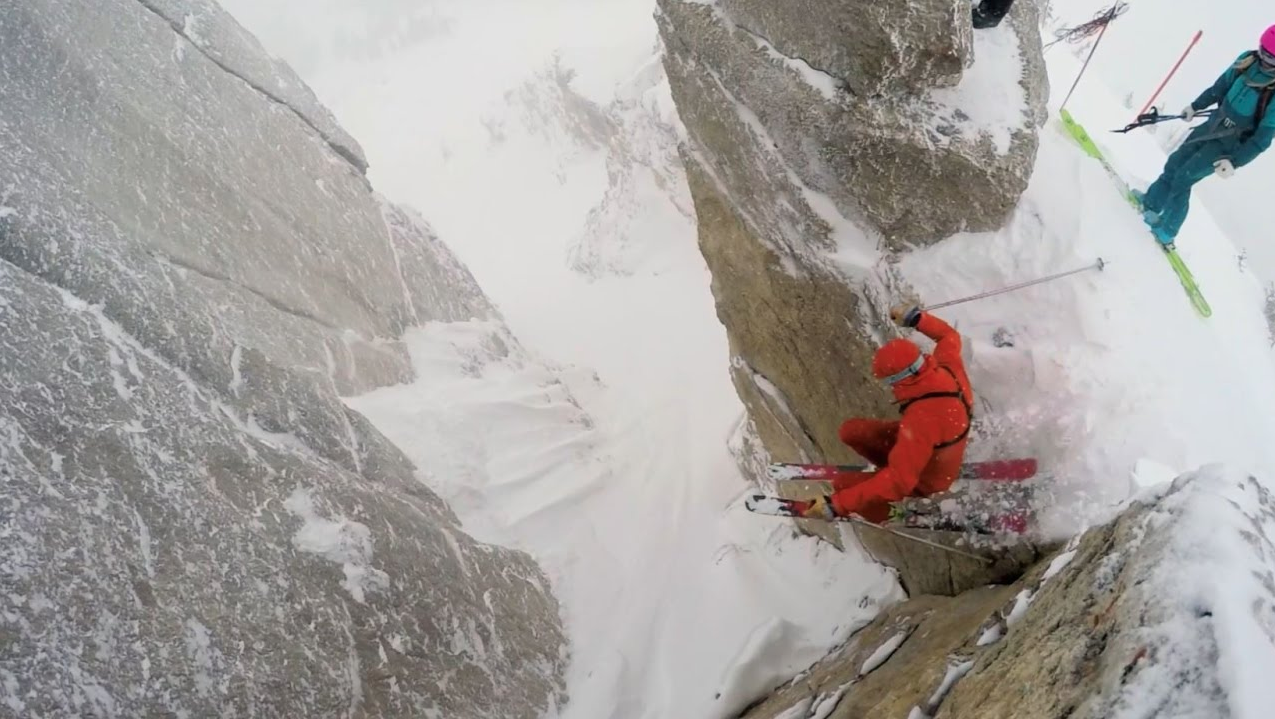
Wild Bill’s S & S Rodeo
JHAF veteran Brian Rutter recalls his vivid memory of skiing the S&S couloir in another interview confessing, “It feels like an elevator was dropped through a window.” Yet even that dire description doesn’t stop local Jackson legend ‘Wild Bill’ Bowen from skiing it every year on his birthday. With expert skill and a huge sense of humor, Wild Bill claimed in the interview that skiing S & S helps to keep him young. And that if he would just keep doing it every year he would “never get older than 21.”
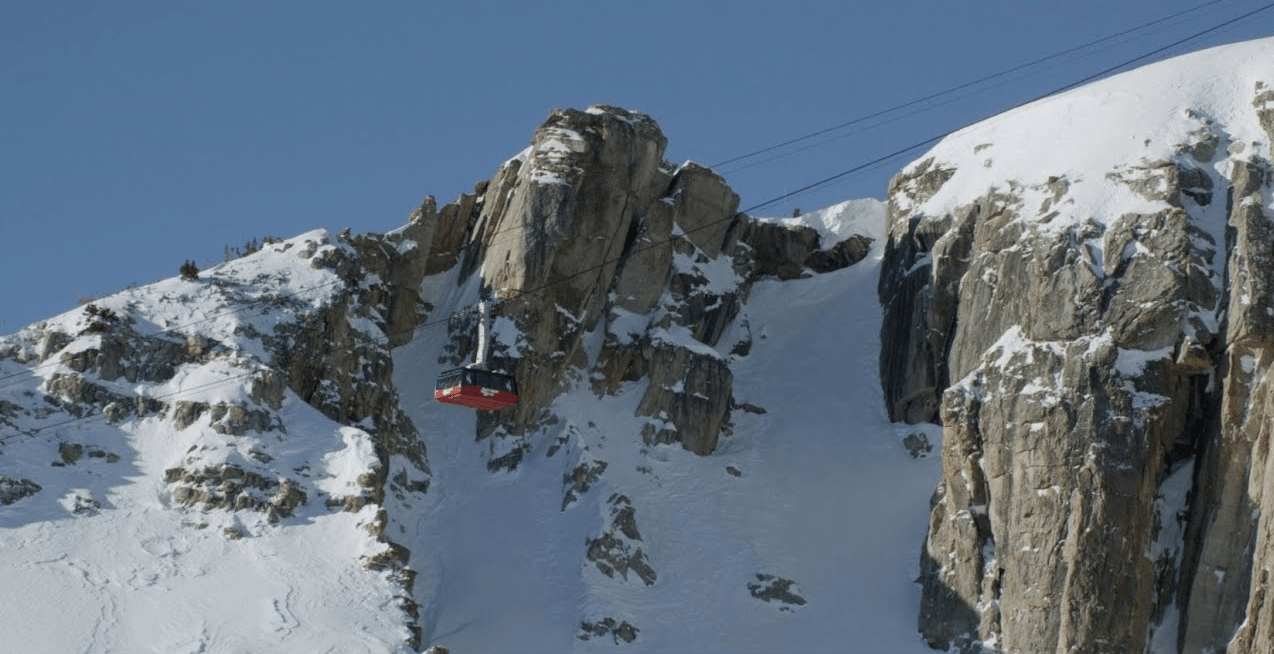
Parting Thoughts / Forever Young
Whether you choose to hit S & S on your birthday or simply watch the FWT broadcast from your couch, freeriding at its core, is all about the freedom of personal expression. And that’s what also makes it so much fun!
Some like to compete on the Freeride Tours. Others like to create and slay the backcountry. Some watch. Others dream. But in the end, it’s really all the same. True love for the sport and a golden opportunity for self-expression.
Final Note
On behalf of the SnowBrains team, I would like to thank you once again. We appreciate all of your feedback and help to make this series a success. We hope you enjoyed reading and look forward to bringing you another in-depth look into the world of snowsports very soon. Cheers!
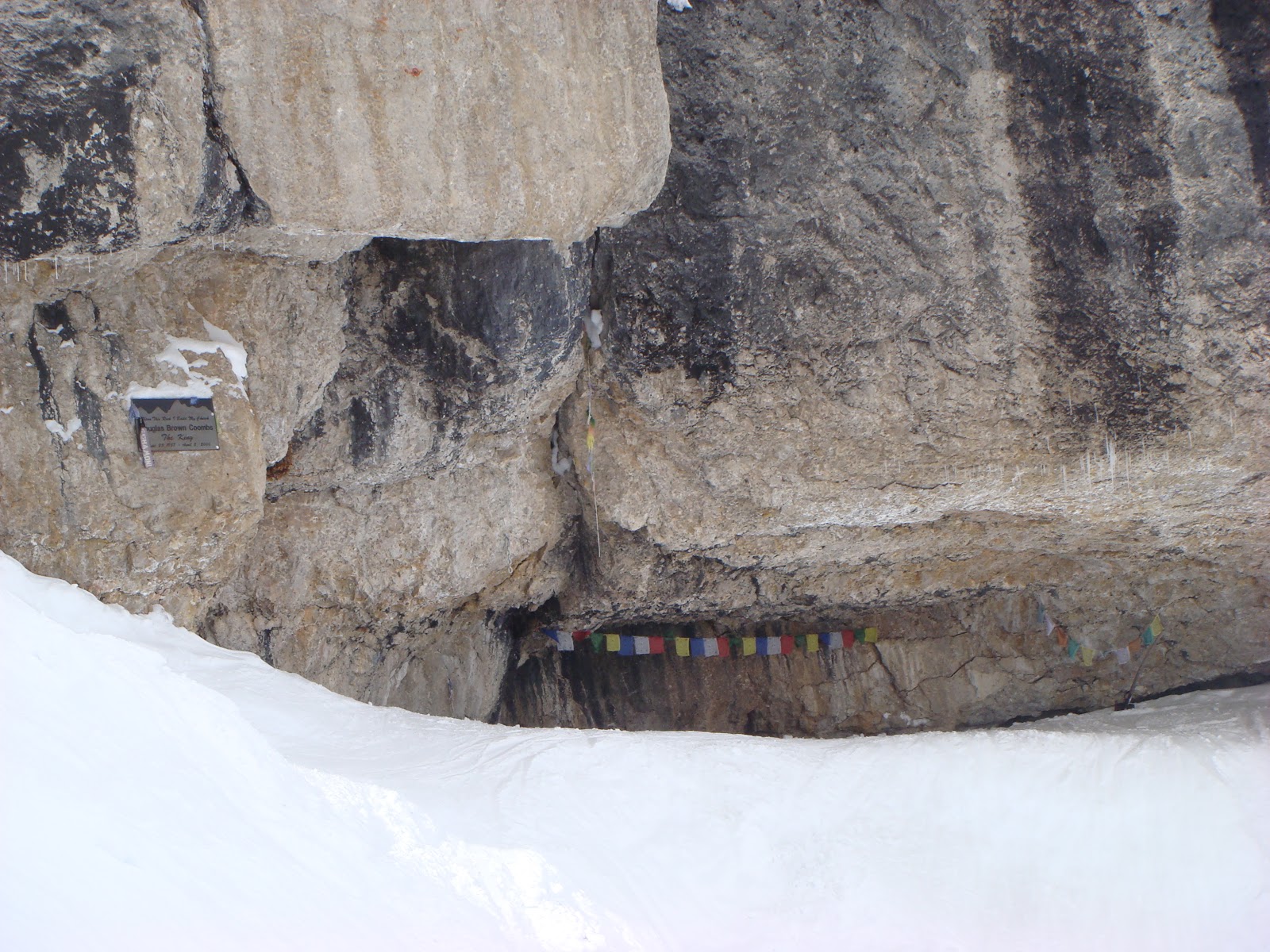
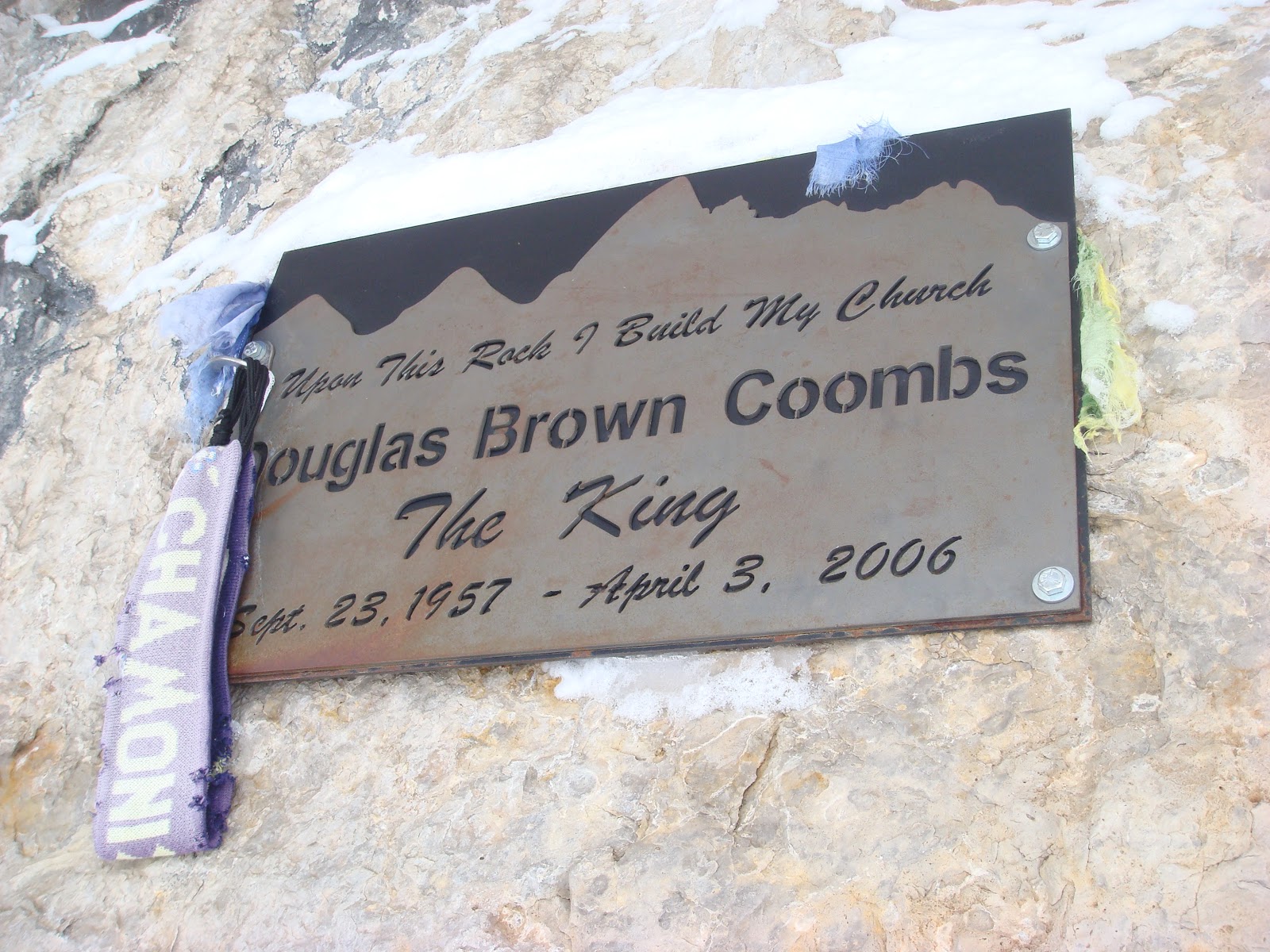
The most overrated run on planet earth.
This is not a tour or an event on a tour. Please correct inaccuracy in title.